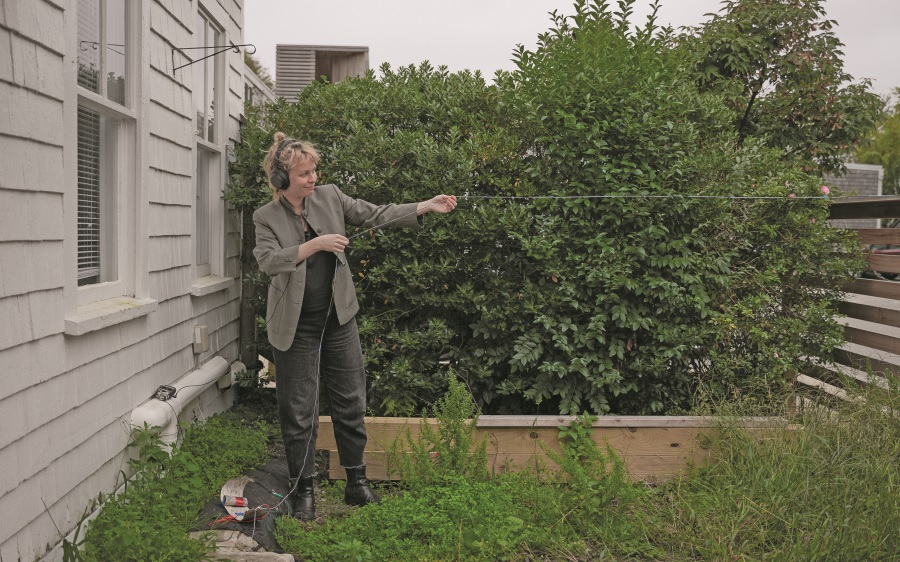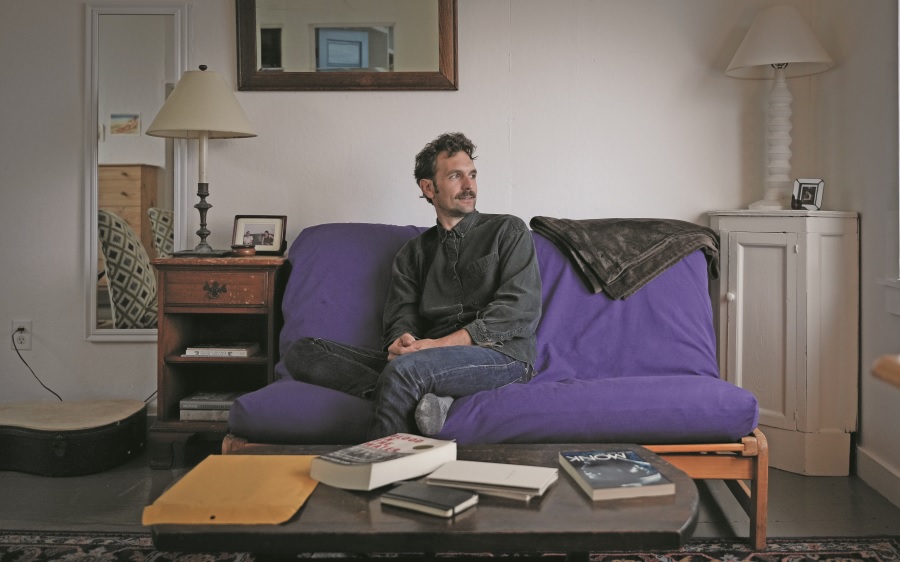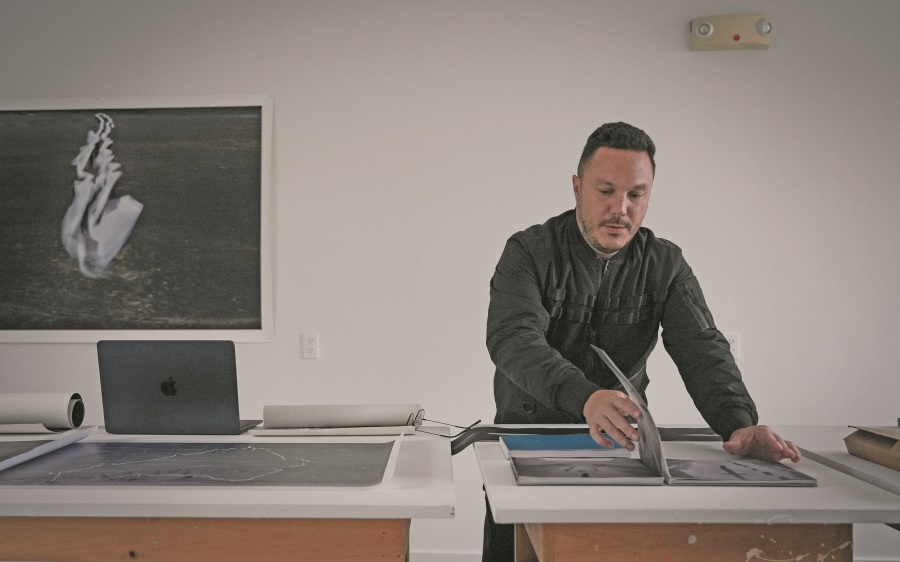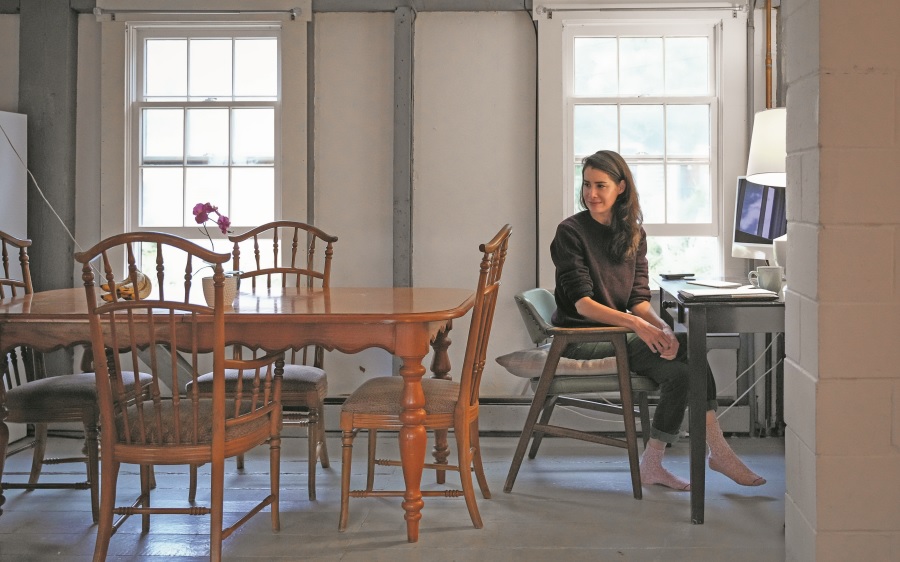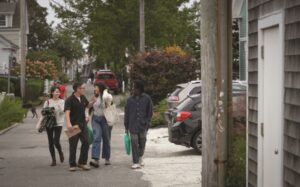As a kid, Molly Anders put her red betta fish in the microwave. Hearing this, you might envision a toilet bowl funeral and a big flush. That’s not what happened.

Here’s what did: Setting out to clean the fishbowl, she dumped the dirty water out, wiped away the scum, refilled the bowl, and poured the fish back in. But the new water was too cold. Its equilibrium disrupted, the fish turned on its side, one eye swiveling skyward. Anders tapped the glass, panicked. The fish started spinning.
She saw the microwave, put the bowl in, and pressed “Start.” A few seconds later, the machine beeped, and she took the bowl out.
The wispy body righted itself and slowly stopped rotating. The fish, she says, lived many more years.
Unexpected resuscitations also happen in Anders’s fiction. You start the story, you make a prediction, and then Anders proves you wrong. Or rather, she shocks something like a déjà vu of the inexplicable back into your consciousness.
Those fleeting sensations of wanting to blow up your life or abandon sobriety or throw your house keys in the creek? We might consider doing these things, but Anders’s characters actually do them in short cathartic scenes.
Anders is back for a second year as a fiction fellow at the Fine Arts Work Center in Provincetown, writing and rewriting a short-story collection tentatively titled “The Ugly Daddy Club” that she worked on during her first fellowship two years ago.
She says that when she sets out to write something, it rarely emerges the way she intends. “I have to come at it sort of sideways,” she says.
A story featuring her older brother’s pet snake, named Puff Daddy, might really be about addiction. In “Summers,” included in her last FAWC reading, the opening scene, at the funeral of a friend’s grandmother, presages the grief of slowly losing the friendship itself.
“For a long time, I thought she hated my guts,” says Anders’s narrator. “Then the summer after the funeral I arrived at her parents’ farm to find that she had named all the spring births after me: the baby chicks, a shy little goat and two cows, all of them named Jessica, even the males.”
Anders is interested in adolescence and the way its middle-school coded tensions demand distance, by degrees, from the intimacies of childhood friendship, especially female friendship. “It’s when we’re learning how to lie and use each other,” Anders says. “Especially for girls, it’s a fraught place because we have so much deception projected onto us.”
In testing out interpersonal politics, there are a series of necessary losses that her characters confront.
“It’s the first time as a person you start to double yourself,” she says. “You’re like, ‘Oh, I have two people: the person that I present and the person that I am when I’m by myself.’ ”
Anders invites readers into this latter version of her characters. The narrative tone of her stories is often unapologetically, almost radiantly blunt — and darkly funny. There are hints of an underlying hopefulness.
After studying Arabic at Bard College, a Fulbright fellowship in Jordan, and an M.F.A. at Syracuse University, Anders has lived in England for nearly a decade. She grew up in Frankfurt, Ky. in a home with a rotating pet menagerie that included Puff Daddy the snake, lizards, frogs, mice, hamsters, and a pair of flying squirrels named Chip and Dale. There was also Tommy the cockatiel, who never learned to talk but devotedly perched on Anders’s shoulder as she rode her bike around the neighborhood.
These childhood pets were some of the first characters onto whom she projected an imagined inner world. At the AA meetings her parents brought her to, she heard the complex disclosures of participants’ real inner worlds. That seems to have produced an undercurrent of acceptance in Anders’s work.
“I have to approach the characters with a sense of childlike wonder,” she says. “I’m not judging them. I have to care about them to tell a story about them. Suspending shame is really interesting as a narrative driver. What could this character do if they felt no shame?”
In a story called “Cattle Show,” you’re sucked into a vision of what it might be like to shape your life around the whims and pleasures of a closeted gay man and probable alcoholic named Mark who is guided by “the Lord and Savior Jesus Christ” and “the agony of being chosen.”
Mark, convinced that the “spear of Christ” is embedded in his back, has abandoned his family to pursue a spiritual journey at cattle shows. But in Anders’s story, his reasoning starts to make an odd kind of sense.
The transformations in Anders’s fiction often happen before a reader can see them. Anders-as-child is crawling on the floor of an AA meeting absorbing a symphony of self-disclosure and learning how to tell a story. Anders-as-writer is sitting at her desk, ears wide open.

